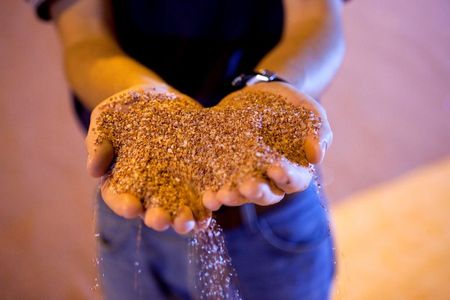By Leah Douglas
(Reuters) – Farmers have asked the U.S. Department of Justice to investigate whether recent spikes in fertilizer prices are attributable to market manipulation by fertilizer companies, according to a letter sent Wednesday by the Family Farm Action Alliance.
The group, which has more than 6,000 farmer and rural members, alleges fertilizer companies are setting prices “not based on basic supply and demand, but rather on the price the farmer is paid for their commodity crops.”
Global fertilizer prices have reached record highs this year, in part due to soaring prices for the natural gas used to produce them, and severe storms in the United States that disrupted production.
But the farm group alleges fertilizer firms could also be hiking prices in response to high commodity prices.
Since the 1980s, consolidation in the U.S. fertilizer industry has shrunk the sector from 46 firms to 13. Two companies, Nutrien Ltd and Mosaic Co, control 93% of the North American potash market, according to a 2020 report by the Federal Trade Commission. Other dominant firms include Yara-USA and CF Industries.
“There’s a potential in the way this industry is structured to really exploit farmers,” said Dr. Philip Howard, associate professor at Michigan State University and expert on food industry consolidation.
Ben Pratt, senior vice president for public affairs at Mosaic, denied that fertilizer companies set prices and said the current spike is due to “curtailed exports from certain nations, including China, and strong global demand, among many factors.”
The other three top fertilizer companies did not immediately respond to requests for comment.
The DOJ also did not immediately respond to a request for comment.
The Biden administration has pledged to take action on agriculture sector consolidation, which farmers have long said squeezes their profits.
The DOJ recently investigated allegations of price-fixing by the largest poultry companies, leading to several indictments, and price manipulation in the cattle market.
Secretary of Agriculture Tom Vilsack recently said that his department would also look into seed patents.
(Reporting by Leah Douglas; Editing by Aurora Ellis)









